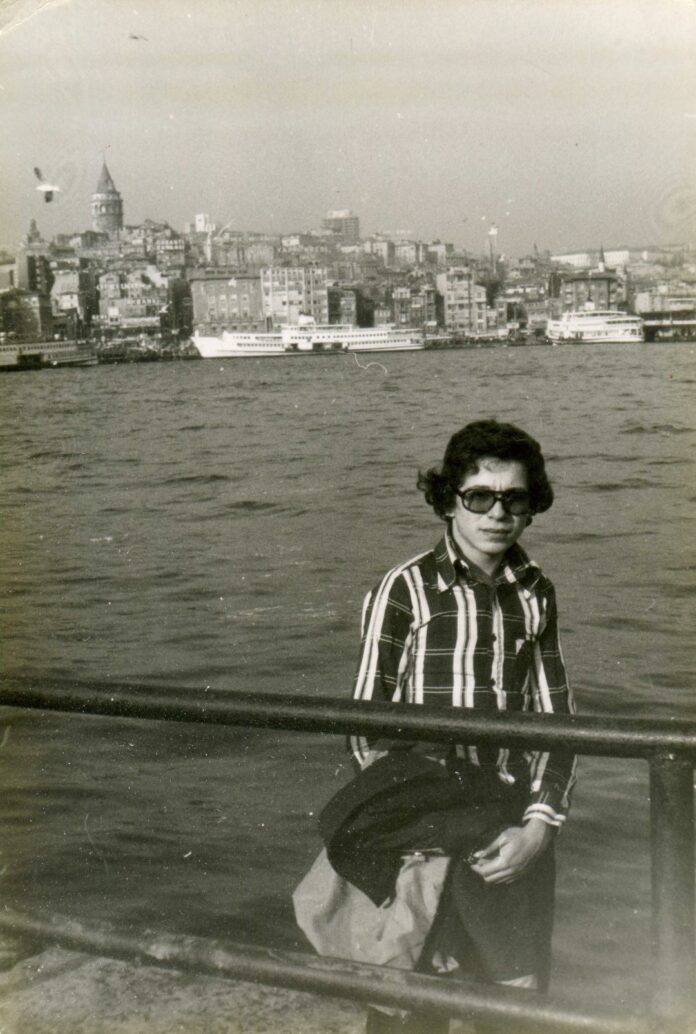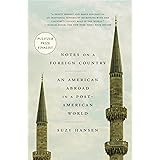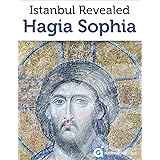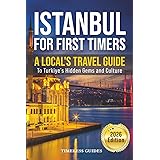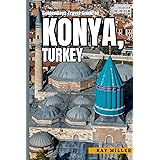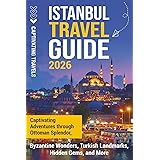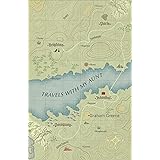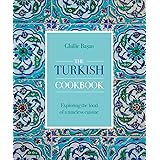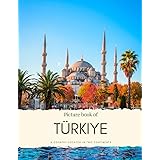If a person chokes, his only son stays depressed (I. 44)
Time passes, people do not hear, human beings do not stay forever.
Divan-i Lugat it Turk
The common name of men and women in Turkish life is PERSON. The perspective on life formed by knowledge, experience and experience is also called PERSONALITY.
Source: https://twitter.com/ebruozkan78
As a result of the literature review on Turkish people, it has been seen that the concept of person, which is different and more inclusive than the concept of human, includes the concepts of life, death, creation and the afterlife. The main concepts have been identified.
The root of the word “person”, which means human in Turks, is water. However, the word human, which is used as the equivalent of the term human in the West, is of Latin, Indo-European origin and is associated with the land. The soil is stable and serene, while the water is fluid and changeable.
The Turks developed their human philosophies within the framework of their conception of the universe during their life in the swamps of Siberia in Asia. They expressed the human being with the concept of Person, which includes life and death together. The concept of person was universal and inclusive. We first see the concept in the inscriptions of Yenisey, Altay, Tonyukuk, Bilge Kagan and Kultigin, and then in the first Turkish book, Kutadgu Bilig.
The center of Yusuf Has Hacib’s thought system is human. Yusuf has established a system that will lead both individuals and societies that have risen to state consciousness to truth, goodness, beauty, happiness, in other words, to rise materially and to rise morally. The driving element of this system is the “responsible” person. Responsibility climbs incrementally, from the ordinary member to the top, according to one’s place and function in society, and reaches its zenith in the head of state. Source: Kezer, Aydın, The Concept of Politics in Turkish and Western Culture, Ministry of Culture Pub., Ankara 1987, 50 https://dergipark.org.tr/en/download/article-file/52285
The concept of the person was so universally inclusive that it constituted the cornerstone of the Turkish society and state structures, world-state ideals and their visions of the next world.
The values of Turkish people are kneaded in the geographies of Greater Asia and Asia Minor. Starting from epics and tombstones, and then inscriptions, people and their values were elaborated until the first written Turkish book, Kutadgu Bilig. The purpose of constantly emphasizing wise and wisdom in the names and contents of people and works is the concern for perfectionism in the processing of personality. The Turks, who entered Asia Minor in the 11th century, encountered a ten-thousand-year-old cultural tradition here. Two centuries after their arrival, they revealed an ageless value like Yunus Emre.
When thousands of years of experience in Greater Asia were transferred to Anatolia via Transoxiana and Khorasan, the same conceptual framework continued. The place where the aforementioned accumulation is expressed the highest is the lands of Eskişehir where Yunus Emre lived. It is the same understanding of humanity that was carried from the swamps of Siberia to the Sakarya River. It is expressed in Yunus with an uninterrupted continuity. The unique cultural accumulation and human diversity brought by the ten thousand years of settlement in the geography of Asia Minor gained a universal synthesis with the arrival of the Turks on the peninsula.
The Turks, with their original cosmology they developed in Inner Asia, defined the human being in the unity of “life, death, creation” only existing in their own language within the framework of the concept of person they developed, and they took their way to universality with the lines of “Sun Flag, Sky Tent” in the Oguz Kagan legend. It is the world of the unrestricted, unclassified simple human being expressed in the verses. In the Turkish works of Kutadgu Bilig and Divan-ı Lugat it, the word “person” is used the most.
In the age of nation states following the disintegration of the Roman Empire, countries such as England, France, Italy, the Netherlands, and Germany revealed the phenomenon of imperialism and destroyed the concept of humanity by subjecting people to massacres and enslaving them. Turks were wanted to be taken into captivity and destroyed by the Chinese and then the Europeans. The reason why the Turks could not be taken into captivity is related to the difference in the understanding of value given to human beings. The emphasis on the concepts of person and personality related to being human is much stronger in Turks. Despite the ambiguity and surrealism of the concept of humanity, which is only a propaganda tool, the concept of personality coincides with the individual person and contains reality. The two world wars that led humanity to disaster were also experienced in Europe.
“Turkish Sir budun, bod yime budun yime person yime” is mentioned in Bilge Tonyukuk (646-724) Inscription , “Turkish people, tribe, nation, human being” is mentioned, in Bilge Kagan (683-734) Inscription “Üze root When the Tengri age was made rainy yir, the second intermediate person was made son” “When the blue sky above and the rain ground below were made, mankind was made between the two” and “ Od tengri lives ” in the Kul Tigin (684-731) Inscription . A person’s son has a kop-region” “God lives the time. The phrase “Mankind has always been born to die” was written in stone.
Kiş, which is the root of the person used in the sense of human in Old Turkish, was used in the sense of sable and quiver. The Siberian swamp otter may have been instrumental in coining the term Kishioglu. It seems possible to establish a connection between the person denoting the swamp otter and the person denoting human. Kis must have been derived from the similarity between the reed area near the waters where the sables live and the people living in a forest with plenty of water, and from quiche the person must have been derived. Thus, the living space became the origin of the term human. The fact that forests and rivers are among the defining characteristics of the settlement or homeland among the Göktürks strengthens this connection. In addition, the fact that the origin myths are directly or indirectly related to water strengthens the idea that man is of water origin.Ayhan Knife. Turkish Thought 1: Origins. Dervish Lodge. Istanbul. 2013. p.42
The concept of personality is much more genuine than Humanity, which does not yet exist, and Transhumanism, which is still in the design phase. While a person is in the process of being chipped away, the personality is permanent, the essence. Human=”He Man” super power. Humanism is abstracting the human from his essence; is elitism.
The concept of humanity is plural and contains ambiguity. The concept of personality is singular and its content is strong. The most used concepts in the written texts of the Turks are the concepts of personality and wisdom. The themes based on Stone Inscriptions and Manuscripts are ourselves and our personality. The main concerns of the defeated Turks in the First World War and the Japanese defeated in the Second World War are the ruptures they experienced within the scope of both concepts. In our country, this rupture has also been experienced in intense discussions about the content of the concepts of culture and civilization. Discussions over dualities and divisions constantly deepen the break.
Person and Heart
When we examine the soul of the Turkish people conceptually, we encounter two interesting results. The first is the concept of the person, and the second is the concept of the heart. In all other languages , the concept of human is seen as homo, humus, human as a soil/ground-based word, while the concept of water-based dynamic person is used as a different concept in the Turkish language, so there is a uniqueness and difference. The person is related to the quiche (otter), which lives by the waters in the wetlands of southern Siberia.
On the other hand, the concept of heart is also the concept expressed with heart and heart in other languages, here again there is a concrete analogy. The heart is the skin of the person, everything that is hurt in it is met with the term heart and it is a very intense concept full of emotion. The person and the heart are both concise concepts. From here, the freedom and difference in the lives of the Turks, the difference of their souls, and a different personality structure show themselves. The phenomenon, which is expressed as heart and heart, that is, with an organ, in all other languages, is expressed as everything inside the body in Turks.
As a result of the Turks expressing the human being with the term person since the beginning, each person has a different structure in terms of genetic characteristics. From here came the concept of personality. Westerners use the concepts of human and individual as two different concepts. Both of these are expressed with a single concept in Turks, the concept of person, and the concept of person to include human and individual.
It has been seen in person how appropriate this is in the development of time. The concept of individual isolates people from other people and sees them as one, but the concept of person has a function in terms of defining and strengthening one’s own self and emphasizes the concept of self. It does not isolate people from other people, but brings together the characteristics of their own self.
There are two factors in the formation of personality, genes/genetics and family. The geographies of Turkestan and Turkey, where the Turks are located, contain the largest genetic pools in the world. In these transitional geographies, there is an extremely rich genetics with all kinds of genes. Secondly, the personality is reshaped in a family pool, and the concept of public that we encounter with the family is that it started with the word kamağ, which means the whole. In the family, which is the smallest and initial unit of the public, the personality determined by genetics is molded again.
Personality: Wisdom
While special individuals who develop in the West are called persons, as individuals become specialized or individuals develop, personalities also reflect their differences. ( Doğan Ergun Turkish Individual Theory. p. 112)
The picture before us is very clear. In the West, when the individual develops, it is called personality, while in Turkish etymology and sociology, human is a person in person; It has a personality, it is developed, it does not need to be developed from the outside. Another result that emerges from this is how the West depersonalizes other human communities through programs such as “personality development”, “personal development” etc.
The main sources we will feed on are not the individualistic human type shaped by the Humanism movement that developed as a result of the Renaissance in the West, but our original and free human type, who valued the society and was shaped by the enlightenment movement and thinkers in Turkestan in the Middle Ages. Mentioning a striking list of our Turkestan sages here will help us develop a striking perspective in terms of evaluating the richness of the resources we feed on.
Since the resources in our west and south cause our alienation, the resources in our east (Turkestan) and north (Russian Turks) will bring us together and confront us again with our personalities and identities that are on the verge of losing. (See: Appendices. Russian Turks)
While the Renaissance in the West developed an individualistic view within the movement of humanism (Doğan Ergun Turkish Individual Theory, p. 104), Turkistan thinkers in the Middle Ages were developing ideas in the direction of wisdom.
Turkish people’s individuality by competing with other people and by exploiting, oppressing and harming other people and preventing those people from developing their individuality, ultimately not as individualism ( Doğan Ergun Turkish Individual Theory. p. 96), but; can develop as wisdom.
While the goal in developing individuality is the competence of only one person, the goal in wisdom is a person who has internalized public values to his environment, people, humanity; It is the information and contributions that it will bring by transcending itself. Individualism and wisdom are opposite currents.
In the Turks, a person is specially trained by the meaning of the word. The goal is to develop as a wise personality in and in front of the society, not as a private individual, as in the West, and buried in loneliness.
Disappearing Foundations: The Person and the Self
As of the 2020s, at the beginning of the 21st century, human beings are going through the process of being cut off from their roots and roots, and these roots will no longer be mentioned. The term Z generation, which is ascribed to it, is an indication that the end of the road has already been reached, and that there is no longer any contact with the roots. The founding roots are the person and himself. Both roots are interpreted as directed only within the person, the world outside the person does not exist and thus the personality is considered rootless.
When the roots are destroyed, other concepts that feed on those roots; heart, public, generation, sky and power will naturally no longer exist. Cut off from the world outside himself, the person has become the prey of consumption traps, he has become an automaton. This is what is called the digital person. Networks other than those that make the person strong no longer exist. On the other hand, people are no longer a person’s friend or comrade, everyone is in a deep loneliness, and people are not friends with each other, they are frankly enemies, the looks clearly show this. It also destroyed feelings of apathy, pity and compassion. Obviously, this coercion is made to deny existence and to drag humanity towards extinction.
There is no single entity in the universe that acts alone. All living things need each other, they are in connection with each other. The forcible isolation of people from their emotions and the destruction of their ties with other people is a process that should be seriously questioned. Thus, when the seven main concepts that define human beings disappear, we will now be talking about another entity, a universal entity human, which is now a thing of the past, atomized and fragmented. As a result of the purification and depersonalization of man, he is now another entity.
When the Turks looked at people, that is, otters, and called people a person by analogy, the subject they developed awareness was the outward social life of the people who were together as a group at the water’s edge. In the first 20 years of the 21st century, as a result of the complete purification and isolation of people from their social character, the person has transformed into another being and has lost its essence. We can no longer talk about the person. A similar fate does not seem to be in question for humans, namely the Otters. However, as a result of the deterioration in people’s social life, the balances in nature are also deteriorating, and as a result, living things in nature will have to lose their sociality and connectivity qualities. Nature will also have to renew itself.The main thing is the enriched life that exists with relationships, and life becomes meaningless.
Copyright of Photograph by Levent Ağaoğlu, Istanbul, 1975
Copyright by Levent Ağaoğlu
@agaoglulevent

